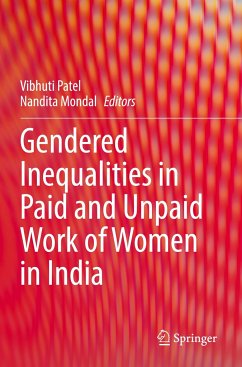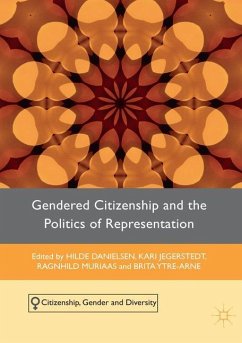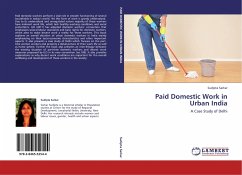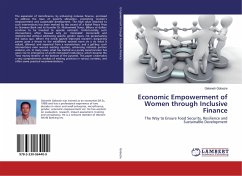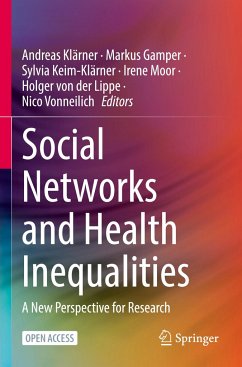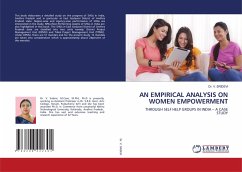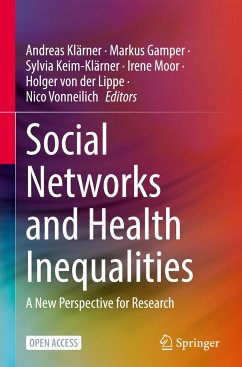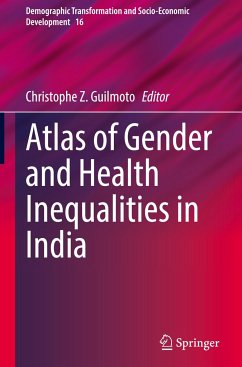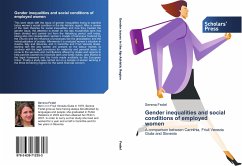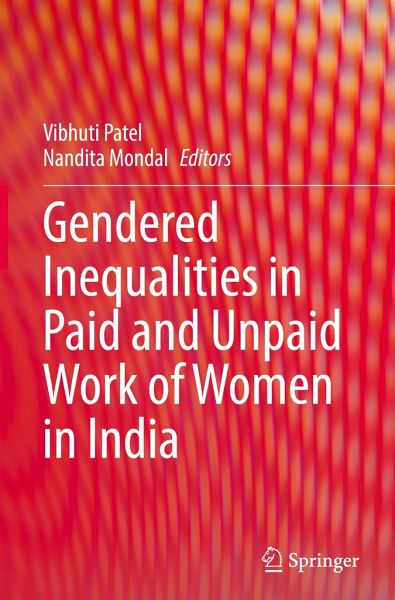
Gendered Inequalities in Paid and Unpaid Work of Women in India

PAYBACK Punkte
53 °P sammeln!
This book explores Indian women's economic contribution through paid and unpaid work in different sectors of the economy and society in extremely diverse life situations and geographical locations. It highlights gender implications of interlinkages between local, national, regional and global dimensions of women's paid and unpaid work in India. It encompasses a vast canvas of life worlds of working women in the metropolitan, urban, peri-urban, rural, tribal areas in manufacturing, agricultural, fisheries, sericulture, plantation and service sectors of the Indian economy. It provides nuanced in...
This book explores Indian women's economic contribution through paid and unpaid work in different sectors of the economy and society in extremely diverse life situations and geographical locations. It highlights gender implications of interlinkages between local, national, regional and global dimensions of women's paid and unpaid work in India. It encompasses a vast canvas of life worlds of working women in the metropolitan, urban, peri-urban, rural, tribal areas in manufacturing, agricultural, fisheries, sericulture, plantation and service sectors of the Indian economy. It provides nuanced insights into intersectional marginalities of caste, class, ethnicity, religion and gender. The chapters are based on primary data collection and triangulation of qualitative and quantitative research methodologies. It presents the multiple marginalities of Indian women in the globalized political economy of the 21st century. It not only focuses on emerging issues but also suggests evidence-based policy imperatives. This book is an essential read for researchers, scholars, policymakers, practitioners and students of women/gender studies.



